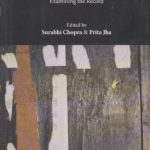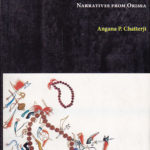Saffron Condition: The Politics of Repression and Exclusion in Neoliberal India
£19.95
Subhash Gatade
Paperback 9788188789757
In The Saffron Condition, Subhash Gatade focuses on the right wing thrust in Indian polity during the first decade of the 21st century.
Description
His writings show that the ultra-right and Hindu nationalist political formations may have temporarily lost out in the race to retain governmental power at the Centre and may appear in disarray, but the agenda of the RSS sponsored Hindutva project for the Hindu rashtra is very much in the reckoning and enjoys widespread State complicity. The impact of neo-liberalism and majoritarianism and their consequences for democracy and human rights are meticulously documented. Above all, he shows what happens when dreams are deferred.
No concerned citizen or student of contemporary India can afford to miss reading this book.
Contents
Preface
Section 1: Saffronization and the Neoliberal State
- The ‘Civil Warriors’ for Hindu Rashtra
- Hindutva is the Real Threat
- Soft Hindutva of the Congress
- A Metaphor Called Hashimpura
- Auschwitz of Our Times
- Modi’s Gujarat
- Gang Rape in Modirashtra
- Saffron Terror: Nanded
- Malegaon Bomb Blast Trail
- Bal Thackeray’s ‘Big Heart’
- Goa: Communal Tinderbox Waiting to Explode
- Hindutva Charities and IT Tribunal
- Pension to the Victims of Emergency
- Political Hindutva
- Experiments in Indoctrination: Rajasthan and Karnataka
- ‘Character Builders of the Nation’ and Mr Shekhawat
- The Yogi and the Fanatic
- Ayodhya: Mutts of Crime
- Nepal Has Done It
- One India, Two Peoples
- Phoney Jihadis, Real Culprits
- Silent Emergence of Hindu Terrorism
- Malegaon to Modasa Blasts
- Hindutva Terror in Karnataka
- Between ‘Spiritual’ and ‘Criminal’
- More on Character Builders
- ‘Hindu rashtra’ in Delhi
- Welcome Mossad!
- Can the Saffrons Bounce Back?
Section 2: Logic of Caste in New India
- Silence of the Lambs: Untouchability and India’s (D)urban Elite
- Inverting Dalit Consciousness
- Subverting the Shudra-Atishudra Revolution
- Calamity and Discrimination
- Dalits: Law as Paper Tiger
- Khairlanji: All Nero’s Brethren
- Touchable Crimes
- Thinking Kambalapalli in Times of Khairlanji
- Tsundur: A Milestone in the Movement for Dalit Emancipation284.Dalits in ‘Hindu Rashtra’
- Horrors of Caste Discrimination in Ashram Schools
- Looking for Brahmeshwar ‘the Absconder’
- False Caste Certificates
- Ghettos of a New Kind: Autonomy and Discrimination
- Viva Academic Untouchability: Reservation in Faculty Recruitment
Section 3: State and Human Rights
- ‘Private’ Armies and ‘Public’ State
- Brutalising Inmates the ‘Tihar Way’
- The ‘Andhra Way’
- Books as Crime
- Irom Sharmila: ‘Great Resister’ of Manipur
- Stigmatising Social Protests
- Any Apologies for Paddars?
- Children’s Doctor and a Mighty State
- People as Trophies in Gujarat
- Who Will Judge the Judges?
- Put Up a Poster, Go to Jail!
- How to Make a Terrorist of an Innocent Person and Say it Works
- When Lawyers Masquerade as Judges
- Writing Equals Sedition
- Who Would Wipe Professor Radoo’s Tears?
- A Two Minute Silence for Naushad Kashimji
- Whether Human Rights of Prisoners Stand Suspended?
- Social Profiling : Indian Style
- And Quiet Flows the Yamuna: A Court Order and its Aftermath
- Sex Choice as Advertisement, Rape as Infotainment
- Can India Emulate the ‘Other Bombay’?
- ‘Sacred’ Pollution
- God and Faith in the Life of Indians
- Bailing Out Dow Chemicals
- Beyond Ableism
- Company Secretary to Replace Inspector:Another Move to Appease India Inc and Let Down the Workers
Index
Subhash Gatade is a well known journalist, left-wing thinker and human rights activist. He has been writing for the popular media and a variety of journals and websites on issues of history and politics, human right violations and state repression, communalism and caste, violence against dalits and minorities, religious sectarianism and neo-liberalism, and a host of other issues that analyse and hold a mirror to South Asian society in the past three decades. He is an important chronicler of our times, whose writings are as much a comment on the mainstream media in this region as on the issues he writes about. Subhash Gatade is very well known despite having been published very little in the mainstream media, and is highly respected by scholars and social activists. He writes in both English and Hindi, which makes his role as public intellectual very significant.
He edits Sandhan, a Hindi journal, and is author of Pahad Se Uncha Admi, a book on Dasrath Majhi for children, and Nathuram Godse’s Heirs: The Menace of Terrorism in India.
Additional Information
| By | Subhash Gatade |
|---|---|
| Published by | Three Essays Collective |
| ISBN | 9788188789757 |
| Format | Paperback |




